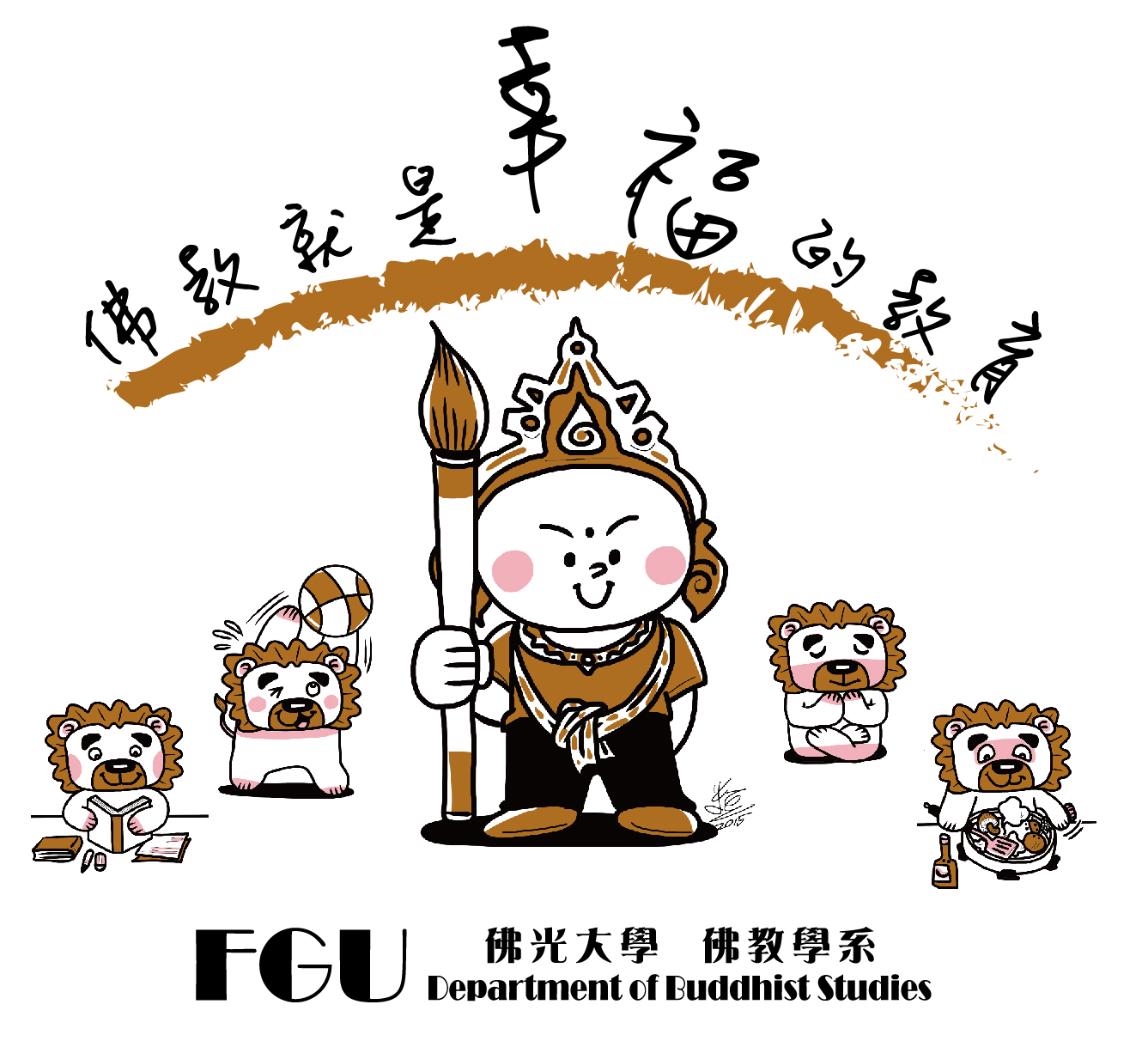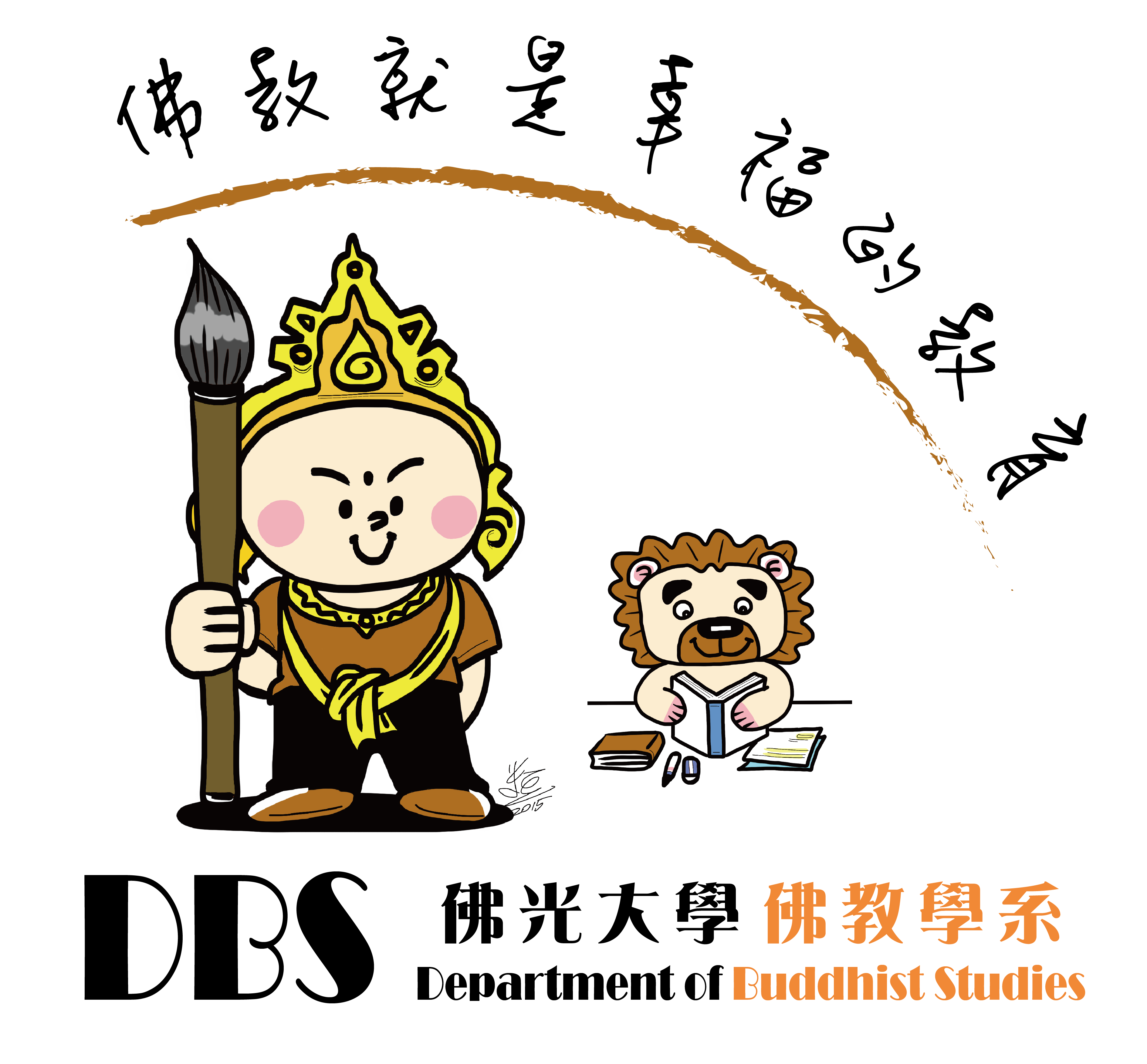Introduction

Beginnings
In 2006, the College and Department of Buddhist Studies (DBS) of Fo Guang University were officially certified as fully accredited by the Taiwan Ministry of Education (MoE). They are respectively the first such college and department in Taiwan recognized by the MoE to award academic degrees in Buddhist Studies.
The bachelor’s and English master’s degree programs were introduced in 2007 and have attracted substantial domestic and international student enrollment. Since inception, monastics and laity have been consistently well-represented at the College. The English master’s degree program is conducted entirely in English and is the first (and currently only) such Buddhist Studies program of its kind in Taiwan.
The Chinese master’s degree and the Doctor of Philosophy degree programs commenced in 2012; the College thus became the first in Taiwan to award PhD degrees in Buddhist Studies.
Mission & Vision
With uncompromising commitment to both ethics and scholarship, our faculty supports a balanced and integrated educational institution which fosters excellence in character as well as academic achievement. Furthermore, our research arm, the Center for Buddhist Studies, was established to make broad, impactful contributions to the understanding and appreciation of Chinese Buddhism on the world stage. To this end, international conferences are organized, visiting scholars are invited, and study-abroad and academic exchanges are arranged for students to broaden their horizons.
Comprehensive University Resources Combined with Professional Buddhist Studies!
-
Fo Guang University is a comprehensive university, offering a unique environment where you can pursue Buddhist Studies while benefiting from diverse academic and campus resources.
- Interdisciplinary Learning: Take courses from other faculties to broaden your knowledge and enhance your competitiveness.
- Diverse Academics: Access extensive library collections and international exchange opportunities for a well-rounded education.
- Vibrant Campus Life: Participate in a variety of activities and clubs for a balanced academic and social experience.
- Professional Training: Combine classical studies with modern applications to develop internationally-minded Buddhist professionals.
- Generous Scholarships: Up to NT$50,000 per semester to support your academic journey.
Join us now and embark on a transformative journey in Buddhist Studies and interdisciplinary learning!
Why DBS? Unlock Your Potential in Buddhist Studies!
Are you ready to embark on a transformative journey that blends academic excellence, personal growth, and global opportunities? The Department of Buddhist Studies (DBS) at Fo Guang University is more than just a place to study—it’s a vibrant community where students shape their own paths, gain real-world skills, and prepare for meaningful futures.
💡 Experience DBS for Yourself!
We invite you to visit—virtually or in person—to discover why DBS is the perfect place for your academic and personal aspirations!
1. A Flexible & Dynamic Learning Experience
📚 Customize Your Education
At DBS, YOU are in control of your learning. Our curriculum offers both depth and flexibility, allowing you to explore:
✅ Core Disciplines: Buddhist literature, hermeneutics, history, philology, philosophy, social studies, arts & culture.
✅ Practical Courses: Unique electives like Buddhis Practices provide hands-on, real-world experience.
✅ Language Mastery: Specialized training in Classical Chinese, Sanskrit and Tibetan, for deep engagement with Buddhist texts.
🌍 Learn from the Best!
Every semester, we bring in renowned guest lecturers to introduce fresh, transformative perspectives that challenge and inspire.
🤝 Engage Beyond the Classroom!
DBS is home to thriving student-led groups, including:
🎼 Chinese Music Ensemble | ✒️ Calligraphy & Sketching
🗣 Conversational English & Japanese
📖 Tea Ch'an Groups 
📢 If you have a passion, we’ll support you in bringing it to life!
2. A Transformative Residential Experience
🏡 Live, Learn, and Grow at Yunshui (Cloud and Water) Residential College
More than just a dormitory, Yunshui is an immersive environment designed to foster personal and social development. Here, students:
✨ Build lifelong friendships and develop a strong sense of community
✨ Master essential life skills for success in any career
✨ Cultivate values of integrity, discipline, and responsibility
✨ Practice mutual respect, humility, and harmony in daily life
🌟 3. Learn Mandarin & Dive into Buddhist Chinese!
Join us for a unique opportunity to not only learn Mandarin Chinese but also develop the skills to read classical Chinese Buddhist texts 🏮.
🏡 Living on campus means you'll have plenty of chances to chat with native speakers, helping you boost your listening and speaking skills in real-life situations 💬.
📖 Our curriculum includes specialized courses in Buddhist Canonical Chinese, and we also offer extracurricular language classes to support your learning journey! 🎓🗣️🎉
 🌟 At DBS, education goes beyond textbooks—it’s about becoming the best version of yourself!
🌟 At DBS, education goes beyond textbooks—it’s about becoming the best version of yourself!
🚀 Join DBS and Shape Your Future Today!
Whether you dream of pursuing Buddhist studies, international research, or an interdisciplinary career, DBS provides the tools, mentorship, and experiences to help you succeed.
🔗 Take the first step—schedule a visit and experience DBS firsthand!
📍 Your journey starts here. Are you ready?
This version is more vibrant, engaging, and student-focused, making DBS feel like an exciting, once-in-a-lifetime opportunity. Let me know if you'd like any further tweaks! 🚀
More on M.A. English-track program
- Extensive Scholarship Support: The Department offers fully enrolled on-campus students a comprehensive scholarship of NT$50,000 each semester for up to four years of undergraduate study or up to two years for graduate (MA/PhD) study. For more, see DBS Scholarship.

 College and Department of Buddhist Studies, FGU
College and Department of Buddhist Studies, FGU